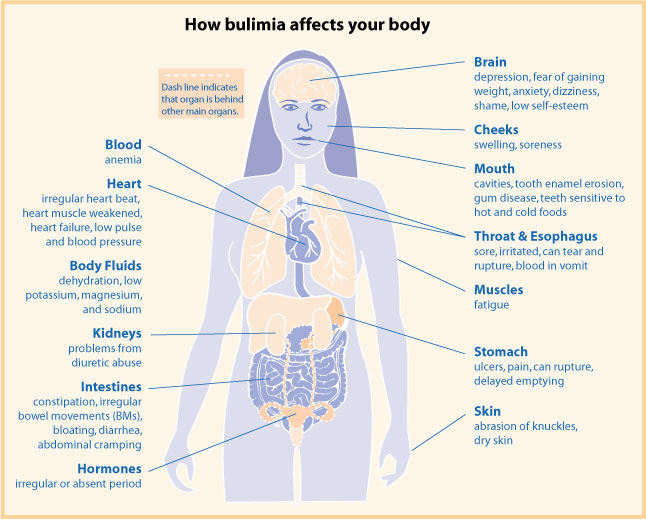|
Sam Thomas (campaigner)
Sam Thomas (born 8 January 1986 in Brighton, East Sussex, UK) is a campaigner for men living with eating disorders, mental health & alcohol addiction. In 2008 he founded Men Get Eating Disorders Too (MGEDT) which in December 2010 became a registered charity in the UK. In 2010 Sam won the ''TalkTalk'' "Digital Heroes" awards for the UK South-east region,South East Digital Heroes Winner Profile: Sam Thomas /ref> and the Beat "Young Champion" award. "Beat" is the working name of the '' |
Brighton
Brighton () is a seaside resort and one of the two main areas of the City of Brighton and Hove in the county of East Sussex, England. It is located south of London. Archaeological evidence of settlement in the area dates back to the Bronze Age, Roman and Anglo-Saxon periods. The ancient settlement of "Brighthelmstone" was documented in the ''Domesday Book'' (1086). The town's importance grew in the Middle Ages as the Old Town developed, but it languished in the early modern period, affected by foreign attacks, storms, a suffering economy and a declining population. Brighton began to attract more visitors following improved road transport to London and becoming a boarding point for boats travelling to France. The town also developed in popularity as a health resort for sea bathing as a purported cure for illnesses. In the Georgian era, Brighton developed as a highly fashionable seaside resort, encouraged by the patronage of the Prince Regent, later King George IV, who spent ... [...More Info...] [...Related Items...] OR: [Wikipedia] [Google] [Baidu] |
East Sussex
East Sussex is a ceremonial and non-metropolitan county in South East England on the English Channel coast. It is bordered by Kent to the north and east, West Sussex to the west, and Surrey to the north-west. The largest settlement in East Sussex is the city of Brighton and Hove. History East Sussex is part of the historic county of Sussex, which has its roots in the ancient kingdom of the South Saxons, who established themselves there in the 5th century AD, after the departure of the Romans. Archaeological remains are plentiful, especially in the upland areas. The area's position on the coast has also meant that there were many invaders, including the Romans and later the Normans. Earlier industries have included fishing, iron-making, and the wool trade, all of which have declined, or been lost completely. Governance Sussex was historically sub-divided into six rapes. From the 12th century the three eastern rapes together and the three western rapes together had separ ... [...More Info...] [...Related Items...] OR: [Wikipedia] [Google] [Baidu] |
Eating Disorders
An eating disorder is a mental disorder defined by abnormal eating behaviors that negatively affect a person's physical or mental health. Only one eating disorder can be diagnosed at a given time. Types of eating disorders include binge eating disorder, where the patient eats a large amount in a short period of time; anorexia nervosa, where the person has an intense fear of gaining weight and restricts food or overexercises to manage this fear; bulimia nervosa, where individuals eat a large quantity (binging) then try to rid themselves of the food (purging); pica, where the patient eats non-food items; rumination syndrome, where the patient regurgitates undigested or minimally digested food; avoidant/restrictive food intake disorder (ARFID), where people have a reduced or selective food intake due to some psychological reasons (see below); and a group of other specified feeding or eating disorders. Anxiety disorders, depression and substance abuse are common among people with ... [...More Info...] [...Related Items...] OR: [Wikipedia] [Google] [Baidu] |
Mental Health
Mental health encompasses emotional, psychological, and social well-being, influencing cognition, perception, and behavior. It likewise determines how an individual handles stress, interpersonal relationships, and decision-making. Mental health includes subjective well-being, perceived self-efficacy, autonomy, competence, intergenerational dependence, and self-actualization of one's intellectual and emotional potential, among others. From the perspectives of positive psychology or holism, mental health may include an individual's ability to enjoy life and to create a balance between life activities and efforts to achieve psychological resilience. Cultural differences, subjective assessments, and competing professional theories all affect how one defines "mental health". Some early signs related to mental health problems are sleep irritation, lack of energy, lack of appetite and thinking of harming yourself or others. Mental disorders Mental health, as defined by the Public Heal ... [...More Info...] [...Related Items...] OR: [Wikipedia] [Google] [Baidu] |
Alcoholism
Alcoholism is, broadly, any drinking of alcohol (drug), alcohol that results in significant Mental health, mental or physical health problems. Because there is disagreement on the definition of the word ''alcoholism'', it is not a recognized diagnostic entity. Predominant diagnostic classifications are alcohol use disorder (DSM-5) or alcohol dependence (ICD-11); these are defined in their respective sources. Excessive alcohol use can damage all organ systems, but it particularly affects the brain, heart, liver, pancreas and immune system. Alcoholism can result in mental illness, delirium tremens, Wernicke–Korsakoff syndrome, Heart arrhythmia, irregular heartbeat, an impaired immune response, liver cirrhosis and alcohol and cancer, increased cancer risk. Drinking during pregnancy can result in fetal alcohol spectrum disorders. Women are generally more sensitive than men to the harmful effects of alcohol, primarily due to their smaller body weight, lower capacity to metaboli ... [...More Info...] [...Related Items...] OR: [Wikipedia] [Google] [Baidu] |
Charitable Organization
A charitable organization or charity is an organization whose primary objectives are philanthropy and social well-being (e.g. educational, Religion, religious or other activities serving the public interest or common good). The legal definition of a charitable organization (and of charity) varies between countries and in some instances regions of the country. The Charity regulators, regulation, the tax treatment, and the way in which charity law affects charitable organizations also vary. Charitable organizations may not use any of their funds to profit individual persons or entities. (However, some charitable organizations have come under scrutiny for spending a disproportionate amount of their income to pay the salaries of their leadership). Financial figures (e.g. tax refund, revenue from fundraising, revenue from sale of goods and services or revenue from investment) are indicators to assess the financial sustainability of a charity, especially to charity evaluators. This ... [...More Info...] [...Related Items...] OR: [Wikipedia] [Google] [Baidu] |
Eating Disorders Association
Beat is the UK's leading charity supporting those affected by eating disorders and campaigning on their behalf. Founded in 1989 as the Eating Disorders Association, it celebrated its 30th anniversary in 2019. The charity is dedicated to helping people with anorexia nervosa, bulimia, binge eating disorder, avoidant/restrictive food intake disorder, and other specified feeding or eating disorder, and providing information to the public about these conditions. History The charity was founded in 1989 from the amalgamation of the existing UK charities, Anorexic Aid and Anorexic Family Aid. The Society for the Advancement of Research into Anorexia merged with the Eating Disorders Association in 1992. Beat became the Eating Disorders Association's working title in 2007, and was formally adopted in 2018. Activities Support services As well as campaigning for better services for those affected by eating disorders, the charity provides self-help support through several different proje ... [...More Info...] [...Related Items...] OR: [Wikipedia] [Google] [Baidu] |
Bulimia
Bulimia nervosa, also known as simply bulimia, is an eating disorder characterized by binge eating followed by purging or fasting, and excessive concern with body shape and weight. The aim of this activity is to expel the body of calories eaten from the binging phase of the process. Binge eating refers to eating a large amount of food in a short amount of time. Purging refers to the attempts to get rid of the food consumed. This may be done by vomiting or taking laxatives. Other efforts to lose weight may include the use of diuretics, stimulants, water fasting, or excessive exercise. Most people with bulimia are at a normal weight. The forcing of vomiting may result in thickened skin on the knuckles, breakdown of the teeth and effects on metabolic rate and caloric intake which cause thyroid dysfunction. Bulimia is frequently associated with other mental disorders such as depression, anxiety, borderline personality disorder, bipolar disorder and problems with drugs or alcohol. ... [...More Info...] [...Related Items...] OR: [Wikipedia] [Google] [Baidu] |
Homophobic
Homophobia encompasses a range of negative attitudes and feelings toward homosexuality or people who are identified or perceived as being lesbian, gay or bisexual. It has been defined as contempt, prejudice, aversion, hatred or antipathy, may be based on irrational fear and may also be related to religious beliefs. Negative attitudes towards transgender and transsexual people are known as transphobia.* *"European Parliament resolution on homophobia in Europe" Texts adopted Wednesday, 18 January 2006 – Strasbourg Final edition- "Homophobia in Europe" at "A" point * * Homophobia is observable in critical and hostile behavior such as discrimination and violence on the basis of sexual orientations that are non-heterosexual. Recognized types of homophobia include ''institutionalized'' homophobia, e.g. religious homophobia and state-sponsored homophobia, and ''internalized'' homophobia, experienced by people who have same-sex attractions, regardless of how they identify. ... [...More Info...] [...Related Items...] OR: [Wikipedia] [Google] [Baidu] |
Bullying
Bullying is the use of force, coercion, hurtful teasing or threat, to abuse, aggressively dominate or intimidate. The behavior is often repeated and habitual. One essential prerequisite is the perception (by the bully or by others) of an imbalance of physical or social power. This imbalance distinguishes bullying from conflict. Bullying is a subcategory of aggressive behavior characterized by hostile intent, imbalance of power and repetition over a period of time. Bullying is the activity of repeated, aggressive behavior intended to hurt another individual, physically, mentally or emotionally. Bullying can be done individually or by a group, called mobbing, in which the bully may have one or more followers who are willing to assist the primary bully or who reinforce the bully by providing positive feedback such as laughing. Bullying in school and the workplace is also referred to as "peer abuse". Robert W. Fuller has analyzed bullying in the context of rankism. The Swedish-Nor ... [...More Info...] [...Related Items...] OR: [Wikipedia] [Google] [Baidu] |
The Argus (Brighton)
''The Argus'' is a local newspaper based in Brighton and Hove in East Sussex, England, with editions serving the city of Brighton and Hove and the other parts of both East Sussex and West Sussex. The paper covers local news, politics and sport, including the city's largest football club Brighton & Hove Albion FC. History Founded in 1880, and for many years known as the ''Evening Argus'', the newspaper is owned by Newsquest (since 1999, part of the US Gannett media group) which in 1996 bought ''The Argus'' and its sister Westminster Press titles from the provincial papers group's parent, the Pearson Group. ''The Argus'' reached a peak circulation of 100,000 in the early 1980s but, like most of its counterparts in the British regional press, has since experienced a considerable decline in sales. In the period December 2010 to June 2011, the paper had an average daily circulation of 24,949 but by the period January to June 2013, average daily sales had dropped to 16,622. For th ... [...More Info...] [...Related Items...] OR: [Wikipedia] [Google] [Baidu] |




